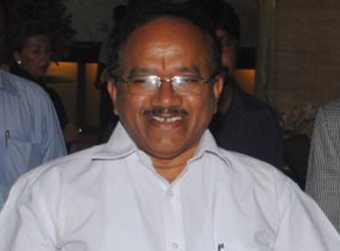What does a Goan port do without iron-ore?
Life hasn’t been easy for the top brass at Goa’s major sea port since a mining ban went into effect in October 2012.
The chairman, deputy chairman and other senior officials of the Mormugao Port Trust have taken on the unlikely role of marketing executives – making the rounds in Karnataka and Maharashtra to persuade industry captains of the merits of Goa’s harbour for exporting cargo.
This is what happens when a mining state has no functioning mines. When a facility set up to export an astronomical 45 million tonnes of iron ore – the actual amount sent in 2011-12, mostly to China – finds itself largely idle. When a 1,500-strong work force at the port has nothing to do except some routine maintenance duties.
What does a respectable Goan port do when there’s no more iron-ore to send to China? How ‘bout exporting a little wheat to Ethiopia or maize to Indonesia?
Granted, the numbers are small compared to the mega-business of exporting iron ore – halted after last year’s scathing Shah Commission report exposing illegal mining.
According to Biplav Kumar, the port’s deputy chairman, one consignment of over 35,000 tonnes of wheat passed through the Mormugao port en route to Ethiopia. Another 24,000 tonnes of maize, sourced from north Karnataka, have also reached overseas, Kumar said.
“The experience was good, and we are hoping to build on it. We’ve met officials of export houses in Bagalkot and Bijapur (agricultural sub-districts in North Karnataka) and are hopeful they will use Mormugao port for future exports,” Kumar said.
Still, it’s no secret that the port is bleeding financially. It’s more accurate to describe these latest pushes as crisis management than any long-term growth strategy.
“There’s no doubt that the ban on iron ore has crippled our revenue generating operations,” said Kumar, who hastened to add that efforts are in full swing to bring in other consignments like food and pharma products.
The efforts are paying off. Last December’s wheat shipment to Ethiopia – sourced from the Food Corporation of India- was the first of its kind. A few weeks later, a private exporter from Karnataka sent a consignment of maize sourced from that state to Indonesia.
Kumar hopes all this will just be the beginning. Who knows? Maybe port officials can get to the point where they won’t even need to pray for the lifting of the mining ban. The port and its employees are far from the only Goan sector forced into workarounds because of the mining ban – from truck drivers to barge owners to all the businesses offering goods and services to the miners.
Still, the ban has wreaked havoc with the Goan economy – despite the great relief it has given to the environment and all those concerned with the damage mining has caused to the countryside.
So while some pray for an end to the ban, others are rooting for the success of non-mining alternatives.
[tok id=f01845b2963fa53788bda8e821e5c011 partner=9385]
The port is getting crucial support in its foray into food exports from the federal government-owned bullion trader, Minerals and Metal Trading Corporation (MMTC).
The Corporation has recently floated tenders in Delhi seeking bids for the export of wheat lying in the Food Corporation of India’s granaries through Mormugao port. It used to export approximately two-lakh tonnes of iron ore annually from here before the ban and is now hoping to offset the losses by exporting wheat.
Port officials, including MPT Chairman P Mara Pandiyan, are working overtime to source other non-mining consignments. For example, they’re in talks with traders to lure them to use the facility for export of wood chips meant for paper mills abroad.
In the last three months alone, representatives of at least half a dozen food exporters have visited Mormugao to survey the facilities. The port is also readying storage facilities for food products to make it more attractive.
Pharmaceuticals are another commodity the Mormugao port is targeting. A facility for the Food and Drugs Administration was recently set up at the port to benefit pharma companies wanting to use the facilities to export their products.
Granite exporters from Hubli in Karnataka have also shown interest. And officials of the port, which has a rail link, have been talking to the Indian Railways to work out transportation solutions for alternative shipments.
Kumar and Customs officials interacted with Hubli’s industry heads and exporters, and South Western Railway boss N C Sinha assured services for passage of granite and maize to the Mormugao Port.
Union Shipping Minister G K Vassan recently told the Indian parliament that his ministry, which controls all the major ports in the country, is looking to create more storage facilities to manage food-grain exports.
That would take over a year and huge investments. Until then, Mormugao port, admits Kumar, will have to reach out to regional players in the food-export
sector and attract them with existing facilities.
Before the ban, about half of India’s iron-ore exports passed through the Mormugao port. It’s unclear when – or if – the mines will be back in business.
Goa’s main port knows it can’t afford to wait around for an answer.
.
.
.






